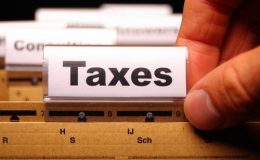
What should I be sending to my tax accountant?
Tax accountants are a valuable resource for small-business owners, helping companies ensure compliance with the wide range of tax laws and identifying opportunities to lower liability and keep more money in the organisation's accounts.
However, a tax accountant can only do their job effectively if they have the necessary documentation and information in their hands. Understanding what to share with your company's tax accountant leads to a more streamlined process and can improve the results of their work. Use this guide as quick reference for the documents you will likely need to share with your tax accountant.

Complete and accurate business records
Keeping accurate, detailed and complete records is a good idea for businesses as a general practise. With information you know is accurate, it's that much easier to review past changes in sales and revenue and plan for the future.
Records are also a crucial component of effective tax preparation. The Australian Government's business resource site explained that federal tax laws require business owners to maintain records related to all transactions tied to tax and superannuation. That includes the documentation drawn on to complete tax returns and reports, as these records ultimately prove that the specifics shared with tax authorities are correct and complete. Additionally, you must maintain these records for a period of five years.
The Australian Taxation Office provides a simple and fast record keeping evaluation tool that can help you determine how your current efforts measure up with the expectations of tax authorities and current laws. While it can't fix prior issues, this tool is an effective way to ensure compliance moving forward and maintain the most relevant and complete set of tax-related records possible.
The basics of a compliant record
The ATO offered a list of three minimum criteria that help its staff and systems review the record and use it to corroborate tax-related questions and concerns, if needed. First, the record needs to include the date the action took place, the amount of money involved, the type of transaction that occurred and any goods and services tax (GST) information tied to it. Second, the transaction's purpose must be recorded. Finally, any relevant relationships between the parties involved in the transaction also needs to be noted.
Other important considerations to make include storing records in a format that prevents them from being altered or damaged, as well as making them available to the ATO if requested.
Records of all individual transactions can be valuable for your tax accountant or tax agent, who may need to review them if a discrepancy or other issue emerges in the course of preparing to lodge your return. As the ATO noted, business owners are ultimately responsible for the information they share with their tax agents.
Finding effective tax support for your business
There are many taxes that small-business owners in Australia must contend with, both on the state and federal level. And each company's tax situation is unique. While most organisations don't need to worry about the wine equalisation tax or the luxury car tax, companies involved with such products in a way that creates a tax liability must have effective support and guidance to help achieve compliance and continue operating smoothly.
Wilson Porter has the experience and expertise necessary to help your company develop a tax strategy that aligns with your goals and objectives. We offer general tax planning and advice, support for specific concerns like GST, fringe benefits tax, land tax and payroll tax and much more. To find out how the team at Wilson Porter can support your tax needs, speak with us today.

 Select taxpayers to receive confirmation on their tax return
Select taxpayers to receive confirmation on their tax return PM calls leading organisations for economic meeting
PM calls leading organisations for economic meeting What does the federal budget mean for your small businesses?
What does the federal budget mean for your small businesses?